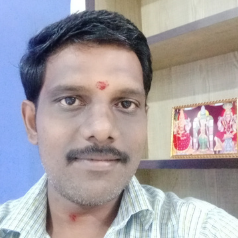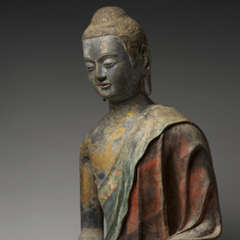Search the Community
Showing results for tags 'enlightenment'.
Found 61 results
-
Recently, I became very curious about bridging science and enlightenment. So, I went through many articles, books, scientific papers etc that have addressed this subject so far and tried to create a synthesis. I put together everything in one article, citing all the sources. You can read it here: https://nellaishanmugam.wordpress.com/2017/06/13/is-there-a-scientific-evidence-for-spiritual-enlightenment/ It is very long one but I hope you enjoy it.
- 32 replies
-
- 1
-

-
- science
- enlightenment
-
(and 1 more)
Tagged with:
-

Awakening Through Mindfulness – Bridging Science and Spirituality
Shanmugam posted a topic in General Discussion
One of the reasons for much of the suffering that we go through in life is taking life too seriously. It is not uncommon though; almost everyone is so serious about the drama of life. So, everyone has assumed that there is no way out of it. But, there is a potential for a change in your attitude towards life which will make you to treat life as the lifelong movie in which we all are just characters. There is also a potential to remove all the unwanted suffering that we have imposed on ourselves by removing the serious identification with the character called ‘you’ and your story.. I went through a journey myself that helped me to realize this potential and make it possible. (You can read more about my journey here: The Journey of a Seeker). I will call that whole process as ‘Awakening Through Mindfulness (ATM)’. If you believe in God, you can use the belief itself as an aid towards changing your attitude. Many people consider themselves as a puppet of the God’s hands. That helps them change the way they react to the situations and stop taking everything personal. But it is just a coping mechanism; No one is actually sitting up there and directing your life. Life and the force of the life itself is a deep and interesting mystery. If you want to call that force God, you can. That is a beautiful personification. Warning! For many people, beliefs have actually been a hindrance in the whole process. There is a way to really experience life as a movie and to be not affected by your self-image. You can completely detach yourself from the identification you have with the self image. .. Changing the attitude is the first step to ending the self created suffering and experience the life impersonally.. Your personality and your ego that projects the personality are just a part of the mask that you, as the character of this movie, are wearing. What hurts the mask doesn’t hurt you anymore, once you start experiencing life this way. Not only your ego and personality, but every thought, emotion, experience and knowledge that you witness in your consciousness is a part of that mask. Remembering this analogy of the mask and contemplating on it can help you to change your attitude to be favorable in the process of awakening. As you proceed with this journey, you will eventually have to drop a lot of your beliefs and directly choose to know what you believed is true or false. Then, either you know or you don’t know. There is no need in believing something. The sense of security that we get from beliefs will not at all be needed anymore once you start experiencing the life devoid of self-created suffering. You don’t need any solace from the beliefs anymore. That life experience which stands apart and independent from your identity is what I call as an ‘awakened life’. What you Call as Self is an Illusion! The next step is just to realize and remember always that there is no self; I am not kidding! It is a scientific fact. What you perceive, think and experience every moment is the result of millions of neurons in your brain communicating with the neighboring neurons through electrochemical signals. This constant perceptual activity gives an illusion that there is a static self. This self which is experienced as being the one who inhabits the body, being the one who is thinking the thoughts, being the one experiencing emotions, being the agent of actions and having free will is an illusion. Also, every person you see is a complex network of forces communicating with each other in cell level, chemical level and atomic level. 2500 years ago, a man called Gautama Buddha revealed the truth of the no-self for the first time. Seeing this in neuroscientific perspective, what you experience as you and your story is just a result of activity happens in a combination of brain structures called Default Mode Network DMN). This network is active when you are mind-wandering,thinking about others, thinking about yourself, remembering the past, and planning for the future. Hyperconnectivity of the default network has been linked to rumination in depression. Studies have shown that meditators and people who claim spiritual awakening have less or almost no activity in DMN. This illusory self is not consistent and static; it is ever changing. But the only thing which is consistent and constant throughout your life is your existence; the conscious, moment to moment experience that you are alive. Three Aspects of the Absolute Reality There are three aspects to what that is consistent: Existence, Consciousness and experiencing. Existence can be defined as whatever that exists in the ultimate, absolute level. You perceive and know that objects exist because of this. It is the sense of being alive.The objects may keep changing but the existence itself is something that is constant. It is not a ‘thing’ though. It is the basis of anything that is subjective. Consciousness is like a light that shines up everything in the existence. It can be compared to the light in a movie screen using which your thoughts, emotions, perceptions and experiences are constantly being played. The movie screen is static all the time. It also exists in sleep, but there is nothing to show. Since consciousness is completely dark and since voluntary functions of the mind are shut off, there is actually nothing much is happening that is worth to be recorded in the brain and stored in long term memory. Experiencing is not about various experiences that you go through every moment. It is the base of all experience, which is naturally peaceful. Peace is always the first and last experience of the lifetime. Even in death, the final moment is peace; a lot of scientists believe that a neurotransmitter called Dimethyltryptamine or DMT released in the brain during the last moment of death which gives peace and bliss. You are so peaceful during the birth too. You can obviously see that in the new born babies. Even throughout the life, you go through a lot of peaceful moments where you are ultimately content, all drives seem to be temporarily satisfied and you experience the ultimate peace and contentment. That peace is not really something that comes and goes. It is the subtle backdrop of all the noisy perceptions happening in the mind and never changes too. It is the base experience of all the experiences. An awakened person may often go through peak experiences (rare, exciting, oceanic, deeply moving, exhilarating, elevating experiences that generate an advanced form of perceiving reality, and are even mystic and magical in their effect upon the experimenter – Abraham Maslow) when they touch the ultimate level of peace. During peak experiences, the boundaries of experiencer, experiencing and the experience dissolve and they all become one. The same happens with the knowledge as well. The knower, knowing and the known become one. Note that, when I say experiencing, I am talking about the ‘experiencing’ aspect of your existence; not about an independent experience. Any experience, including the peak experience com and go. But the ‘experiencing’ part of that which is consistent never changes. It would be better to use a different word than experiencing but I can’t think of anything that comes closer right now. So, whatever that is consistent which has the aspects of existence, consciousness and experiencing can be called with any name you want to use. You can call it XYZ if you want! Some words that have been used in eastern traditions are absolute, Om, brahman, Sat-Chit-Ananda etc… Some call it as your ‘true self’. The problem with all these labels is that you start to see this XYZ as some object, a thing; Something that can be either perceived, experienced or known. But it is actually like the space or the field in which everything is perceived, experienced or known. So, it is very important to not to get too attached to the word. Seeing the illusory self for what it is and completely removing the identification with it lets you to relax yourself in the truth of being alive and conscious. It will eventually let you free from hedonic treadmill and the pursuit of subjective self worth. You will feel liberated from the prison of this illusory self. This will give you a tremendous acceptance of what is; You will see life as a game with its own rules and challenges. But seeing that as just a game which will eventually end, makes you to play it with enjoyment and a great sense of peace. Many practices have been suggested which help you to go through this process of awakening; self-inquiry, contemplation of the truth and so on. The practice that I can suggest for you is the one which worked for me.. It is called Sati in buddhism, Shikantaza in Zen, Shakshi bhav in Upanishads and mindfulness by buddhists as well as modern psychologists. Mindfulness is used not only as a path to awakening, but also in modern therapies as a means to decrease depression and stress, increase well being, control addictions, slow down emotional reactivity etc. What is Mindfulness and How to Practice it? Mindfulness can be defined as focused nonjudgmental attention to experiences of thoughts, emotions, and body sensation in the present moment that is practiced by simply observing them as they arise and pass away. The paper ‘Mindfulness: A Proposed Operational Definition’ which was published by University of Toronto in 2014 suggests a two-component model of mindfulness: 1) Regulation of attention in order to maintain it on the immediate experience 2) Approaching one’s experiences with an orientation of curiosity,openness, and acceptance, regardless of their valence and desirability. When you try to observe your thought process, you may lose your attention many times. Once you notice that the mind has wandered, you just bring it back to the awareness of thought process or body sensations again. No matter how many times the mind wanders away, you must take it easy and accept it. You can do this while doing whatever you are doing, like walking, eating, working out, waiting in a queue etc. Notice the flow of thoughts as if you are watching a stream flowing or traffic moving. Eventually you can extend the time that you practice mindfulness to most of the waking hours of the day. This may take years and years of practice. When practicing mindfulness, don’t approach it as if you are working towards a goal. That would simply mean that you are enhancing the self-concept and strengthening the identification with it .Awakening is not an achievement. It is getting rid of the craving for any achievement that increases your self-worth or enhances your self-concept. Seeing mindfulness as a means for something to be achieved itself is a trap which may slow down the process of awakening. In a couple of months of practice you may start noticing gaps in your thought process.You may also notice reduction in the number of thoughts. Also, a lot of unconscious patterns and repressed thoughts may start to come up and appear in the light of your conscious observation. It is quite normal. Just pay attention to whatever that comes up without reacting to it. But if you do react to it, that’s ok. Just notice that and wait to see what comes up next. As you do it more and more, the gaps will be more frequent and you may even start to wait for the next thought or feeling to arise. In a few months, you will start to feel more peaceful and relaxed. Your emotional regulation would also have improved. While practicing, become aware of the defense mechanisms of the ego whenever you notice them. Notice the repeated thought patterns and your attempts to maintain and protect your self-esteem. Reading the authentic sources of Zen and Advaita can help you a lot in moving through the process. Personally for me, reading the transcribed talks of Osho and J.Krishnamurti were helpful in understanding how mindfulness works and how to go about practicing it. Osho called it ‘witnessing’ and J.Krishnamurti called it as ‘Choiceless awareness’. The names are different but the meaning is exactly the same. Once you have practiced mindfulness for long term for a year or two, you may go through a crisis at times, usually called ‘Spiritual Crisis,’ a form of identity crisis where you experience drastic changes to your meaning system (your unique purposes, goals, values, attitude and beliefs, identity, and focus). It may cause a lot of disturbance, but don’t be alarmed. It happens to everyone but it will pass. The fruits of mindfulness always outweighs the disturbances caused by spiritual crisis. Benefits of Mindfulness I came across an interesting paper ‘How Does Mindfulness Meditation Work? Proposing Mechanisms of Action From a Conceptual and Neural Perspective’ published in 2011 by Association For Psychological Science. It lists 5 major benefits of mindfulness and also lists the details of studies which support them. Here are those five benefits: Attention regulation Body awareness Emotion regulation, including a. Reappraisal b. Exposure, extinction, and reconsolidation Change in perspective on the self. The fourth one, ‘Change in perspective on the self’ is very important, which explains in detail about a lot of what we discussed about ‘Self’ in this post. You can search for this paper in ‘Academia’ and download it for free. There have been many other studies done on mindfulness which show that mindfulness decreases suffering and increases subjective well being. Buddha prescribed mindfulness as the path to spiritual enlightenment. Whether you are looking for spiritual enlightenment or just improved well being, there is no doubt that mindfulness is the way to go. Also published in my blog: https://nellaishanmugam.wordpress.com/2017/05/26/awakening-through-mindfulness-bridging-science-and-spirituality/-
- 2
-

-
- awakening
- mindfulness
-
(and 3 more)
Tagged with:
-
Hello everyone...Here is the story of my spritual journey: https://nellaishanmugam.wordpress.com/2017/05/10/the-journey-of-a-seeker-my-story/The post starts from how I viewed life in my early childhood, clouded by the irratational beleifs that I had.. Then I explain how my spiritual search started. I have written about evey significant event that happened along my spritual journey. I have talked about the spiritual awakening that I had in 2014 and what followed after. At last, I have also put the concept of spiritual enlightenment in a scientific perspective and tried to explain it using the terminology of academic psychology. It is a very long post. But since it goes like a story, I believe it will be easier for you to read. I am looking forward to your comments and questions...
- 6 replies
-
- 6
-

-
- awakening
- enlightenment
-
(and 3 more)
Tagged with:
-
They say animals cannot get enlightened because they lack the necessary faculty. Only in human form it is possible. It has been said, even devas/angels have to take human birth to attain liberation. Made me wonder, if I have to make a prerequisites list for liberation, what would it include. I am starting with the assumption, it has to be human. I welcome challenges against this also. What else is absolutely needed? 1)Human (aka with body+mind+intellect to inquire) Does, health, functions of organs, energy, kundalini any of this are pre-requisites? Let's take an illustration. Some one is 98 years old. Bedridden in hospital. The faculty of seeing (physical organ - eyes) don't work so great. The person can't stand up. The only food is through fluids. The faculties of hearing don't work so great. He lived a life immersed in the joys and sorrows of the world outside. He was never on a spiritual quest and have not even heard of the word liberation or enlightenment. At this point, he some how comes to know about this liberation/enlightenment. He says, hey this is what I want. He is sincere and earnest in his seeking. Do we tell him, "Buddy, it's too late, why don't you just relax and try it next time around? See your sushumna is not open. It will take years of practice to open it up. You need to do pranayama and all. Or you should do karma yoga, or you should inquire diligently." With the body, the person stands no chance of doing pranayama, or any cultivation. 1) Technically nothing should stop him from getting enlightened, if he had the mind and intellect functioning. If we go by what masters say, he is already 'that' and only ignorance is the road block (like clouds), then he just needs to become aware of his true self. He should be able to do it anytime just before the last breath. I would like to see who would agree with this. 2) Those that say, the person stands no chance in the present form or body. He can only plant the seed, but it is impossible to attain the goal in the state(withering body) he is in. If we were to say, he stands no chance, this would put prerequisites for enlightenment, such as health, function of organs, etc. If this is the case, then let's list out what we think as prerequisites.
- 146 replies
-
- 3
-

-
- enlightenment
- qualification
-
(and 3 more)
Tagged with:
-

Do (all) enlightened masters agree on any one single thing?
s1va posted a topic in General Discussion
For the sake of this post, let's assume starting from (before) Lao Tzu, Buddha, Adi Shankara, other prophets..... to ... Ramana Maharishi...... to ............. today (those that say they are enlightened) and have a huge following, that give lecture, have written books or scriptures (were written later based on their teachings), are all enlightened. Now that we made that assumption, do all these enlightened masters agree on any one single thing? If so, what is it? Some say world is illusion and just like bubbles, some other say yeah it's illusion but there is one truth behind it, some say no it's no illusion, it is very real, there are many things, only this moment is true...... Pray to one God, many Gods, don't pray to God, Just be, accept, surrender, observe, live in the present, knock and it will be opened, be still and know who you are.... - we reincarnate, all is per karma, some don't agree or the karma or reincarnation topic is not even worth talking about..... - do practices, yoga, alchemy, do self enquiry -- don't do any of these, they are all useless. Many say there is no suffering after enlightenment. There is no unanimous agreement on this also. If the enlightenment is the same state that all of them attained, then how come they all don't agree on any single thing? If I ask this question, then I am told, "This state can not be described by words neither can it be taught to anyone." Then why did all of these people give lecture about enlightenment, or life. If none of them can describe or communicate it, what is the point of all these lectures, teachings and books?- 126 replies
-
- 3
-

-
- enlightenment
- enlightened
-
(and 3 more)
Tagged with:
-
( definitions are here: https://www.google.com/search?q=enlightenment&rlz=1C5CHFA_enUS520US520&oq=enlightenment&aqs=chrome..69i57j69i61j69i60.2038j0j7&sourceid=chrome&ie=UTF-8#q=spiritual+enlightenment) Based on the recent topic... First, let's get count of Awakened/Enlightened around here. Then, let's understand what it actually means from their personal perspective. Bonus question: can one enlightened/awakened "see"( recognize) another one without having to use words? Extra bonus question: when one says he/she is "Awaken/Enlightened", what is your first reaction? Celestial cookies for right answers will be served with high mountain tea shortly. -meow *Modified poll to be anonymous to encourage participation.
-

Mantra and Dharani Samadhi as skilful means to reach enlightenment
DSCB57 posted a topic in Buddhist Discussion
I would like to ask the following questions: 1. Can Mantra and Dharani Samadhi and Mantra/Dharani repetition/chanting lead to enlightenment? 2. Is this a recognized method? Is anyone here following this method, and would you be willing to discuss it? 3. Which branches of Buddhism practice Mantra and Dharani Samadhi as an enlightenment method? How does this work? 4. How does such practice transform or destroy akusala karma?- 73 replies
-
I would like to ask the following: 1. What lies beyond enlightenment? 2. What different levels of enlightenment exist which are accessible to a human being? 3. What is the difference between these levels? 4. What is the difference between the elightenment achieved through the practice of Buddha Dharma and that achieved through Taoist Cultivation practices? 5. What are the advantages and disadvantages of each of these approaches? 6. Is there any spiritual relationship between Buddha Dharma and Taoist Cultivation practice?
-
Hi everyone. I would like to know which forms of Cultivation lead to full enlightenment rather than earthbound immortality? What does the method consist of in these practices? David
-
-

A technology has been developed to lucid dream, what about enlightenment?
Shad282 posted a topic in General Discussion
A Kickstarter project being developed to help you recognize you are sleeping and thus make you aware in the dream and become lucid: https://www.kickstarter.com/projects/1705207344/the-lucid-dreamer-wake-up-inside-your-dreams so you don't need to train or do anything in order to become lucid and worry about anything. https://www.facebook.com/NowThisFuture/videos/1257420744299103/ some would say that lucid dream may help to clear issue and thus help with chakras and so help with enlightenment, would be more like making a virtual world to deal with your issues and solve them, in a safe place, under your control. would you think it is a good idea? would you think, we might come to a time where an enlightenment pill or something in that space would be invented? wouldn't it be beneficial to just clear your chakras and become aware of energy without the hassle of the whole process? Even though, yes it is about the journey, but still.. things much easier Thanks- 6 replies
-
- 3
-

-
- enlightenment
- meditation
-
(and 3 more)
Tagged with:
-
- 64 replies
-
- 3
-

-
- nirvana
- enlightenment
-
(and 1 more)
Tagged with:
-
You can tell whether someone is fully enlightened by checking whether they exist. ( https://twitter.com/Dowlphin/status/701924690017779713 ) I usually post stuff like this on my Twitter, mixed with other varieties of thoughtful materials in the areas of commentary, humor, wordplay, messing with your mind etc.. I'm always happy about appreciative audience. It makes a crucial difference. I'm hurting so much. (I guess? I'm a bit confused. ... At least I think so.)
-
Almost every report of someone who claims to have achieved enlightenment ( or god-realization) is described the same way. It always has the element of losing the concept of the self in the many. Being one with everything & everyone. Since most New Age spiritual practices present the concept of God being everything, this is taken to mean that a person has become one with God. However, other than this "God is everything" concept, what is making us associate this experience with God, whatever God is supposed to be? I have recently been considering the concept of the herd mentality of humanity. Science has put forward the idea that this element exists as a leftover from our evolution from a herd species. I am certain this element exists from my own personal experiences to need to conform to mass society and also the existence of mob mentality which I need to research further. Perhaps I can state one example of the still existing herd mind in me: When I put my movie rankings on Criticker, I always have a number decided before visiting the site but once I get there and see rankings of others or its average, I feel the need to adjust my score to match theirs. I can fight this urge but it will always present itself initially as an automatic mental effect. So perhaps what we currently call enlightenment is simply an example of this herd mind element in the brain completely gaining control for a little while? I don't know. Just an idea that occured to me. Would love to hear your views.
- 36 replies
-
- enlightenment
- social
-
(and 2 more)
Tagged with:
-

[SOLVED] Searching for video link: The Dharma Trap (EDIT: Advaita Trap)
Owledge posted a topic in General Discussion
I've seen a video a while ago and cannot find it anymore. Maybe one of you remembers it. Maybe I remember the title wrong. But I think it was called "The Dharma Trap". It was an animated sketch about someone in a dialogue with others, someone who would claim to have reached ultimate enlightenment and uses that claim/belief for disqualifying any critique he could have. Basically using "It's all an illusion anyway, so I am not doing anything, and you are all deluded" as a reaction to any argument thrown at him, and being trapped in a perpetual cycle of that type of 'reasoning'. I liked that video, because it sheds some light on a problem that can occur in spiritual endeavors/communities. Happened on TTB one or more times, too.- 3 replies
-
- comic
- self-serving
-
(and 4 more)
Tagged with:
-
.
- 36 replies
-
- 2
-

-
- buddha
- enlightenment
-
(and 1 more)
Tagged with:
-
no point.
-
Hello, How does all of this Neidan/Neigong/Qigong/Energy stuff relate to Non-Dual Truths/Enlightenment? Enlightenment as explained, and axiomatically acknowledged/intuited by myself (and many others), in (some/most) Zen/Advaita/Self-Inquiry/Jnana Yoga approaches is seeing realising what is True, is seeing through the illusion of Self, realising no-self, etc (I could go on and/or make it more specific, but, if you know self-inquiry, you know the jist of what I'm talking about). I have heard/read that these insights/seeing through the illusions/bullshit/labels/separations, etc, leads to a purifying of energy in itself as a sort of side effect. Through bouts of extreme insight I have felt something akin to this. How does this approach of inquiry and realisation relate (if at all) to Neidan/Neigong/Qigong/Energy stuff, according to you? As I have mentioned before, I am relatively new to Taoist/Chinese terminology but I have heard the phrase of Ghost level of realisation tossed about, or something, when referring to this approach, as if it's inferior, but, to me, realisation of Truth, of no self, of pure awareness, of pure being and non-being, everything/nothing seems to be self evidently final. From my preliminary reading it seems that the aim of energy work is to maintain the memories of this incarnation and then go about your business, just like someone who's enlightened on earth, but, as an immortal forever. So, someone who DOESN'T do this stuff that realises no self, what's supposed to happen to them? They just cease to be and rejoin Tao/One/Brahman/Totality completely? Superior and inferior aren't really the words I like to use, but they're all I have here. This ceasing to be/becoming one with Tao seems simultaneously superior and inferior. Superior in its sense of ultimate letting go and finality, ultimate Truth. Inferior in terms of utility and not being able to go on helping others, BUT, the cosmos/karma/one/Tao/Brahman, etc, does this, provides exactly what we need to wake up all the time anyway, so, we don't really need teachers in some regards. Also, there're reports about ascended masters, etc, who seem to have practiced this self inquiry approach themselves but are then still travelling around the different planes of existence/that are still contactable, implying that they don't just fade away or cease to be, but they are still going about their business, not identified with their form, but, also still able to operate. Anyway. Your thoughts on this would be interesting.
- 33 replies
-
- 7
-

-
- Advaita
- Non-Duality
-
(and 4 more)
Tagged with:
-
Dawg has recently awoken and he is here posting in our midst and it is truely something to be excited about. I am making this post for several reasons - not the least of which is just what it is labeled - a toast to Dawg!!! We wish you all of our support and thank you for being here with us while half a world away!
- 4 replies
-
- 10
-

-
- Awakening
- enlightenment
-
(and 3 more)
Tagged with:
-
This topic appears from time to time in posts on other topics but I haven't seen a topic dedicated to this question of book study in cultivation. Below is a quote from page 11 of Master Nan-Huai-Chin's "Working Towards Enlightenment." Note that Nan-Huai-Chin has been recognized as being Enlightened by a number of masters of the Buddhist tradition. "Suppose people wanted to become buddhas - to study the Buddha Dharma. If they were to take these works listed above (about 25 Buddhist scriptures), and spend three to five years of effort reading and studying to enter deeply into them and put their contents into practice, this would definitely be enough. It would be best if everyone could awaken without departing from the scriptures and treatises. Some think that all that is necessary is to cultivate practice and do meditation work. They think that it is not necessary to read the scriptures and treatises. This is absolutely wrong. We must recognize that in doing meditation work, if we do not clearly understand the principles, if our views are not correct, then our meditation work will not be able to get on the right track. In other words, if our meditation work is not done well, it is just because we have not mastered the principles involved." Yes? No?
- 83 replies
-
- 5
-

-
- Enlightenment
- scriptures
-
(and 1 more)
Tagged with:
-
Here is a link to my latest blog post: http://adifferentpath.blog.com/2014/03/21/thoughts-on-thoughts/ I have just started absorbing this idea, but I am curious to know if you think I am on the right track or not. I appreciate your feedback!
- 10 replies
-
- 3
-

-
- enlightenment
- Truth
-
(and 1 more)
Tagged with:
-
Had a guy create this video and post to my channel saying that I needed to watch it. All the stirring up his emotions & growling made me feel uneasy-- not going to say that his energy was giving something off-- I'll just say I felt uncomfortable. My bestie told me to stop watching, but I told her that I felt like I at least owed it to him to finish the video. "If you can't see what's going on, there's something wrong with you." >> I didn't like how he kept making that statement. What if I don't see anything other than him stirring up his emotions and pissing himself off to create some sort of hormonal response & calling it "kundalini" (which it can be...that's sort of what happens in KAP's Secret Smile, but nothing like what he's doing) Anyway, just thought I'd share-- and Pearish, if you happen to be a member of the Tao Bums, no harm, bro-- I'm just looking for a few other opinions before I post a response--
-
A great deal of our growth in the arena of expanding our awareness and on the path of enlightenment has more to do with the simple basics and far less to do with the so called "advanced" practices. Advanced practice is reached primarily from basic practice. Basic practice becomes advanced all on its own. As you progress on the path, the simple teachings are in fact by a very long shot the most important and the easiest to skip over - pushing them aside in a race to "master" the basics. It can also be hard to think straight in your teens and early 20s with what for some of us is a raging hormone storm and this may create the feeling of the urgency to "master" the basics aside from the intense desire to do so. Included in the basics are meditation, some breathing techniques, and some posture basics. Often wholly brushed aside is diet - or as is freqently the case - it is an egotistical way of life diet of only organic items and a very full identification with this diet (certainly nothing wrong with the diet - it is a very good diet - but the identification is often so enuciated it should be obviously an area to work on). Also brushed aside in general is the Ego - we see this all across these boards - statements of surety that is so obviously way beyond actual experience, the over use of quotes as though this redeems a lack of thinking or real experience. Almost no desire to consider what Right Thinking actually might mean - little discussion of it if any - an assumed understanding - ["my" understanding] Right view Right intention Ethical conduct Right action Right effort Right mindfulness Right concentration Take right effort: About 99% of the effort is done towards Gain The gaining of advanced practice skills, and the effort to maintain a good practice in order to continue "up" along the path. We indulge in poor food, alcohol, smoking and a limitless supply of energy reducing behaviours and think nothing of it. Even if we eat well, do not smoke and our drinking is none or well within a composed fashion, we attach ourselves to every cause under the sun and compress huge amounts of judgement into them and cast our will about the universe with abandon - often ready to pounce upon any protrusion from our indefatigable indignation. We practice this daily! It is our story and our biggest practice! It is primarily how we die - and how most of us are completely dead by the age of 45 - deadend to our story - our treasured illusion. We come out of it briefly in our old age when it hits us that we have been way off and need to purcase some insurance. Or we do not come out of it - and our after death is quite a delay for us. Another thing we skip over - though this practice is now coming to light - is the mindfulness to those energies we have come to know: If you have come to feel a particular chakra or energy center - try to stay aware of it at all times. This is a primary way to Awaken Say you feel the warmth of your 4th chakra in meditation and everytime you put your awareness on it you can feel it - then put your attention on it and be with it during the day. Slowly but surely it will be present more and more - and with it will come an increase in other awarenesses as well. Soon you will be more in this space than not - perhaps all the time. Practice not venting your energies on your story - stay with your being - notice when you leave your awareness space - you will find it leaves you often during the "you" that you believe you know best (the one you identify with). Many of the most "advanced" practices become your story - your new story - you are identified with your prowess of stretching, your ability to do some esoteric practice - and your ability to use the word esoteric as though you know what it means to be inside the innermost 3rd circle. If you ignore the basics - the balancing basics, then learning the "higher" forms present much more danger than they afford apportunity and growth. Another form of over engineering comes from fear - but this is a long enough beginning for now. Please join this discussion!
- 29 replies
-
- 15
-

-

U.G. Krishnamurti - the Mystique of Thinking and Thought
JustARandomPanda posted a topic in General Discussion
Thought I would share this YouTube vid given by U.G. Krishnamurti. He says a lot of interesting things about thought, thinking, space-time, science, Descarte's I Think Therefore I Am and most of all - what he calls The Mystique of Enlightenment - which is the title of the Youtube vid. Ever since I discovered him several years ago I'd been interested in some of the things he said. I love his critique of Descarte and of people wedded to thinking in general (or as J.K. Rowling calls them - muggles). Imo this YouTube vid could just as well be (and far more accurately) titled The Mystique of Thinking and Opinions - since that's the discourse he keeps coming back to over and over and over in the interview. Wanted to mention U.G. discusses the scientific search for the Higgs-Boson particle and science in general.- 2 replies
-
- 1
-

-
- Krishnamurti
- Thought
-
(and 4 more)
Tagged with:
-
Has anybody seen these? Pretty good, even if a bit biased about some things from time to time... Here's episode 1 for those interested: I apologise for the typo in the title of this thread. Can I edit it?










